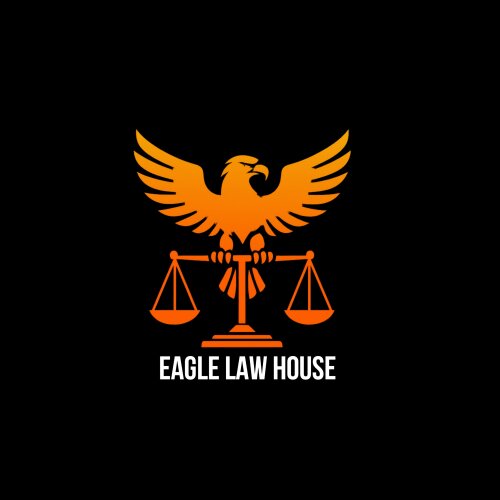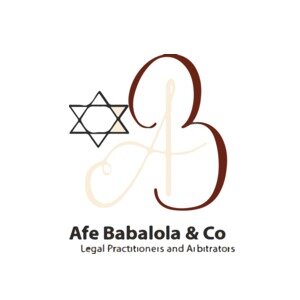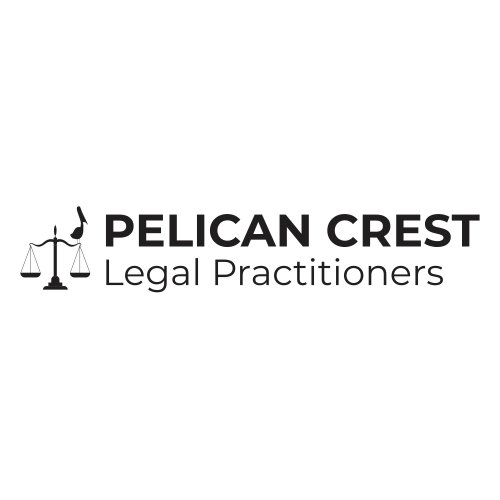Best Corporate Governance Lawyers in Nigeria
Share your needs with us, get contacted by law firms.
Free. Takes 2 min.
Or refine your search by selecting a city:
List of the best lawyers in Nigeria
Legal guides written by Adeola Oyinlade & Co:
- Procedure and Requirements for Work Permit and Visas in Nigeria
- The Step-By-Step Procedure of How to Apply for Microfinance Bank License Online in Nigeria
- How to Ensure the Smooth Recognition and Enforcement of Foreign Judgments in Nigeria
About Corporate Governance Law in Nigeria
Corporate governance in Nigeria refers to the system of principles, policies, rules, and processes by which companies are directed and managed. It involves how business objectives are set and achieved, the relationship between the board, management, shareholders, and other stakeholders, as well as the mechanisms for achieving accountability and transparency. In Nigeria, corporate governance is gaining importance as businesses recognize the need for ethical standards, compliance with regulations, and sustainable practices to grow and compete regionally and internationally.
Why You May Need a Lawyer
Several situations may require the help of a legal professional experienced in corporate governance. Common scenarios include:
- Setting up a new company and ensuring compliance with the latest regulations.
- Advising board members and executives on their legal duties and liabilities.
- Assisting with drafting and reviewing company constitutions, board charters, and internal policies.
- Resolving disputes between shareholders, directors, and other stakeholders.
- Handling investigations by regulatory authorities for non-compliance.
- Advising on mergers, acquisitions, and corporate restructuring while ensuring good governance practices are followed.
- Protecting minority rights and handling whistleblower complaints.
- Implementing effective risk management frameworks within the corporate structure.
A lawyer’s guidance ensures that the organization not only adheres to relevant laws but also fosters a culture of accountability, ethical leadership, and sustainable business practices.
Local Laws Overview
Corporate governance in Nigeria is shaped by several local laws, codes, and guidelines. The most influential are:
- Companies and Allied Matters Act (CAMA) 2020: This is the primary law governing corporate operations in Nigeria. It provides comprehensive regulations on company incorporation, directors’ duties, shareholders’ rights, annual meeting requirements, disclosures, and more.
- Nigeria Code of Corporate Governance 2018: Issued by the Financial Reporting Council of Nigeria (FRCN), this code provides principles and recommended practices for corporate governance, especially for public and private companies. It emphasizes board independence, accountability, disclosure, stakeholder engagement, and sustainability.
- Securities and Exchange Commission (SEC) Corporate Governance Guidelines: Applicable to publicly listed companies, these guidelines address issues such as board composition, disclosure practices, internal controls, and whistleblowing mechanisms.
- Sector-specific regulations: These include directives from the Central Bank of Nigeria (CBN), National Insurance Commission (NAICOM), and Nigerian Communications Commission (NCC) that require compliance with industry-specific governance standards.
These laws and guidelines are regularly updated to align with international best practices and improve investor confidence in Nigerian companies.
Frequently Asked Questions
What is corporate governance and why is it important in Nigeria?
Corporate governance is the framework of rules and practices by which a company ensures accountability, fairness, and transparency in its relationship with stakeholders. Its importance in Nigeria lies in building trust, enhancing investment, reducing corporate scandals, and supporting sustainable economic growth.
Who is responsible for corporate governance in a Nigerian company?
The board of directors holds primary responsibility for corporate governance. They set the company’s strategic direction, oversee management, and ensure compliance with legal and ethical standards.
What are the main laws governing corporate governance in Nigeria?
The primary laws include the Companies and Allied Matters Act (CAMA) 2020, the Nigeria Code of Corporate Governance 2018, and, for listed companies, the SEC rules and sector-specific regulations.
What are the key duties of directors under Nigerian law?
Directors must act in good faith, exercise reasonable care and skill, avoid conflicts of interest, and act in the best interest of the company. They must also disclose material interests and comply with applicable regulations.
How are shareholder rights protected in Nigeria?
Shareholders have rights to attend general meetings, vote on resolutions, receive dividends, and inspect certain corporate records. The law protects minority shareholders from oppressive actions by majority owners.
How does Nigeria address issues of transparency and disclosure?
Nigerian companies are required to maintain proper financial records, present audited reports, and disclose beneficial ownership. Disclosure obligations are more stringent for publicly listed companies.
What penalties apply for poor corporate governance practices?
Penalties may include fines, regulatory sanctions, removal of directors, or legal actions against the company or individuals. Repeated non-compliance can also result in loss of business licenses or delisting from stock exchanges.
Are corporate governance requirements different for private and public companies?
Yes, public companies are held to higher standards, especially regarding board composition, disclosure, and stakeholder engagement. Private companies have fewer obligations but must still comply with CAMA and general governance principles.
Can disputes related to corporate governance be resolved outside court?
Yes, disputes among stakeholders can often be resolved through arbitration, mediation, or other alternative dispute resolution mechanisms, which are encouraged to avoid lengthy litigation.
How can a company improve its corporate governance framework?
Companies can appoint qualified independent directors, adopt robust internal controls, improve stakeholder communication, provide regular training for the board, and stay updated with regulatory changes and best practices.
Additional Resources
For more information or support regarding corporate governance in Nigeria, consider the following bodies and resources:
- Corporate Affairs Commission (CAC): The regulatory agency for company registration and compliance.
- Financial Reporting Council of Nigeria (FRCN): Oversees accounting standards and the Nigeria Code of Corporate Governance.
- Securities and Exchange Commission (SEC): Regulates listed companies and enforces governance rules in the capital market.
- Institute of Directors Nigeria (IOD): Provides training, resources, and networking opportunities for directors.
- Nigerian Bar Association (NBA): Can help you find experienced corporate governance lawyers.
- Central Bank of Nigeria (CBN): For governance standards in financial institutions.
- Professional legal publications and journals: Offer insights and analysis on the latest developments in this field.
Next Steps
If you need legal assistance in corporate governance in Nigeria, start by clarifying your specific needs, such as company compliance, dispute resolution, or updating governance frameworks. Document key issues, gather relevant company records, and identify all involved stakeholders.
Consult with a lawyer or law firm with expertise in Nigerian corporate governance. You can seek referrals from professional associations or check with the Nigerian Bar Association. Prepare for your consultation by listing your questions and concerns to ensure a productive discussion. In complex cases, consider engaging a multidisciplinary team, such as legal advisers, auditors, and governance consultants to address potential risks holistically.
Proactive action is essential. Addressing corporate governance challenges early helps prevent regulatory penalties, protects your company’s reputation, and contributes to long-term business success.
Lawzana helps you find the best lawyers and law firms in Nigeria through a curated and pre-screened list of qualified legal professionals. Our platform offers rankings and detailed profiles of attorneys and law firms, allowing you to compare based on practice areas, including Corporate Governance, experience, and client feedback.
Each profile includes a description of the firm's areas of practice, client reviews, team members and partners, year of establishment, spoken languages, office locations, contact information, social media presence, and any published articles or resources. Most firms on our platform speak English and are experienced in both local and international legal matters.
Get a quote from top-rated law firms in Nigeria — quickly, securely, and without unnecessary hassle.
Disclaimer:
The information provided on this page is for general informational purposes only and does not constitute legal advice. While we strive to ensure the accuracy and relevance of the content, legal information may change over time, and interpretations of the law can vary. You should always consult with a qualified legal professional for advice specific to your situation.
We disclaim all liability for actions taken or not taken based on the content of this page. If you believe any information is incorrect or outdated, please contact us, and we will review and update it where appropriate.
Browse corporate governance law firms by city in Nigeria
Refine your search by selecting a city.

















